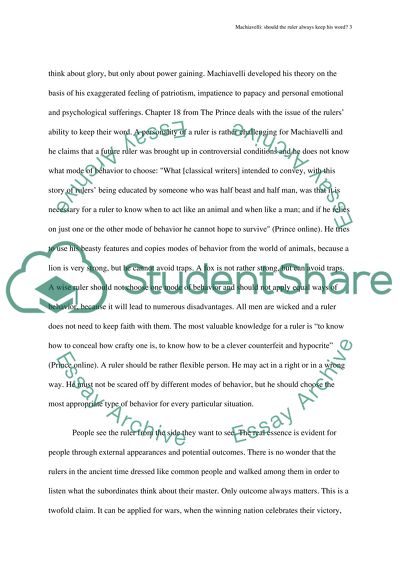Cite this document
(“Machiavelli: Should the Ruler Always Keep his Word Essay”, n.d.)
Retrieved from https://studentshare.org/philosophy/1453716-should-a-ruler-always-keep-his-her-word-discuss
Retrieved from https://studentshare.org/philosophy/1453716-should-a-ruler-always-keep-his-her-word-discuss
(Machiavelli: Should the Ruler Always Keep His Word Essay)
https://studentshare.org/philosophy/1453716-should-a-ruler-always-keep-his-her-word-discuss.
https://studentshare.org/philosophy/1453716-should-a-ruler-always-keep-his-her-word-discuss.
“Machiavelli: Should the Ruler Always Keep His Word Essay”, n.d. https://studentshare.org/philosophy/1453716-should-a-ruler-always-keep-his-her-word-discuss.


